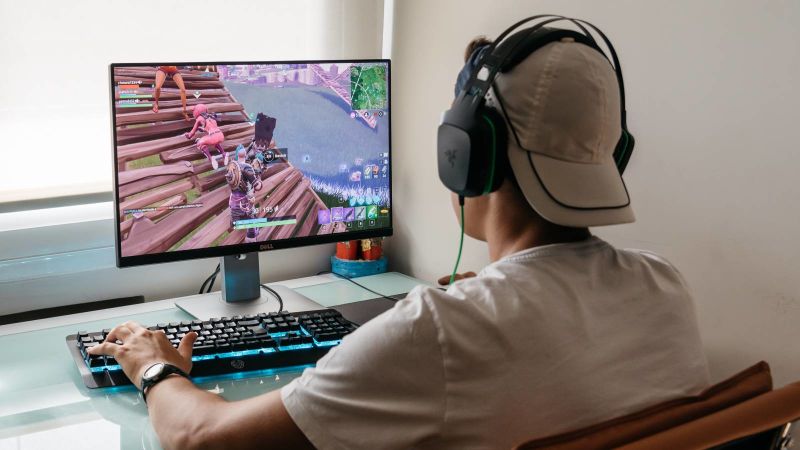For higher or worse, sequels are the lifeblood of the games’ enterprise, and E3 encapsulates this reliance in a regularly gaudy fashion. Every year l. a. bears witness to publishers trotting out the equal names year after year towards a backdrop of primary colors and dubstep ‘bangers’, all while online game executives gleefully huddle together in clandestine board room conferences to decide upon more and more outlandish sales objectives for [insert sequel] 4. This isn’t specific to video games, of course. Almost all forms of enjoyment are fashioned mainly with a staunch dedication to the grinding cogs of ‘franchise’ production. However, video games have a unique knack for kick-beginning sequel chatter earlier and with alarming frequency compared to different entertainment mediums. E3 2016 can not manage to pay to provide into this over-reliance. We want formidable steps, now not secure ones, because the AAA space is crying out for something exceptional, something new, and something that does not end with more than a few.

It’s worth noting that sequels can – within the right fingers – become systems for perfecting conceptual thoughts, enable experimentation in the barriers of a longtime formula, and outmatch their predecessor(s) in phrases of excellence. There may be a purpose sophomore outings including Murderer’s Creed 2, Uncharted 2, Mass Impact 2, and Gears of Battle 2 are more fondly remembered than their progenitors and why, despite the hatred towards its debut, Watchdogs 2 indeed looks like it can supply on the unfulfilled promise of the series’ techno-mystery, hack-em-up conceit. However, it incites a troubling reliance on – and expectation for – numbered compliance with- U.S.A. the fee for clean IP.
This leaves us with a modern-day AAA video games marketplace unexpectedly drawing near-stagnation. Ubisoft made valiant tries at blooding fresh IP with The Division and the Watch Above Puppies. At the same time, Bungie’s divisive MMO-lite first-man or woman shooter destiny has enjoyed dazzling degrees of achievement. However, these examples are the exception instead of the norm.
The previous generation of consoles introduced a swathe of recent IP that has shaped the mattress-rock of the cutting-edge one. Franchises have lumbered closer to their third, fourth, fifth, and in some cases even ninth (make that hiatus as long as feasible, please, Assassin’s Creed) installments on the present-day spread of domestic consoles, but we’ve witnessed an alarmingly small range of contenders demand their spot in the limelight.
If most of the people of the pre-display speculation come to bypass at E3 2016, the leading conferences will be filled with identical old faces yet again, with little or no respite among them. Even though it optimistically might not be as barren as the last 12 months’ event, where Horizon: Zero Sunrise – a game wherein you take down massive mechanical dinosaurs with a bow and arrow set in opposition to a beautifully lush put-up-apocalyptic backdrop – led a minuscule p.c. of fresh faces. It’s miles relatively likely.
(and completely understandable) that the phrase ‘robot dinosaurs’ has loads to do with the exhilaration around Guerrilla Games’ next mission, but I can’t be the simplest one who felt a tangible sense of remedy when Horizon turned unveiled, to an extensively warm reception, at ultimate 12 months’ occasion. “ultimately, something without a range of tacked on to the end of its title. Perhaps that is a difficulty of timing. There is an underlying feeling that the time is right, and the collection will re-emerge in Los Angeles this time. Gears of Warfare and God of Battle sequels appear ‘overdue’ at this point, with the former sure to be Microsoft’s centerpiece and a couple of leaks suggesting that Kratos is still irritated approximately something after a three-month break.
Nintendo has mastered this idea for decades. For 30 years, the Legend of Zelda has, by hook or by crook, maintained an air of secrecy in contrast to some other gaming franchises, a lot so that Nintendo can find the money to commit everything of its display-ground presence to the long-awaited subsequent installment. If the absence makes the coronary heart grow fonder, considering that by the time Zelda Wii U/NX was released in 2017, it’ll have been six years, considering Skyward Sword, which seems even longer. However, there needs to be a few sorts of balance. E3 2016 is an opportunity for a wave of ‘following massive matters’, and Ubisoft and EA have
already devoted themselves to flaunting new IP at this 12-month event. The purpose cherished franchises exist because they commenced somewhere and at the same time as some develop antique and float into irrelevancy, at the same time as others upward push, fall, and are reborn – evidenced using Doom’s blistering go-back this year. Not all games want sequels of the path. I would be content to by no means see The Final People Two or Bloodborne 2, no matter counting both among my most loved gaming experiences, as the pair have an air of mystery of untarnished singularity surrounding them. The fact, however, is that the bloated, mega-budget gaming surroundings we presently stay in are predicated on the lifestyles of sequels to live to tell the tale.





